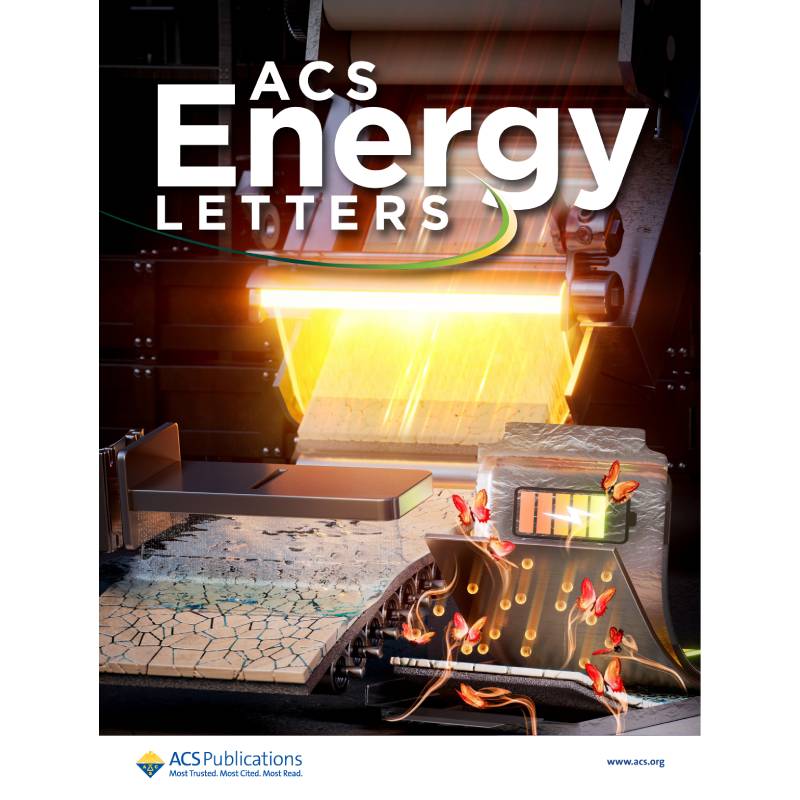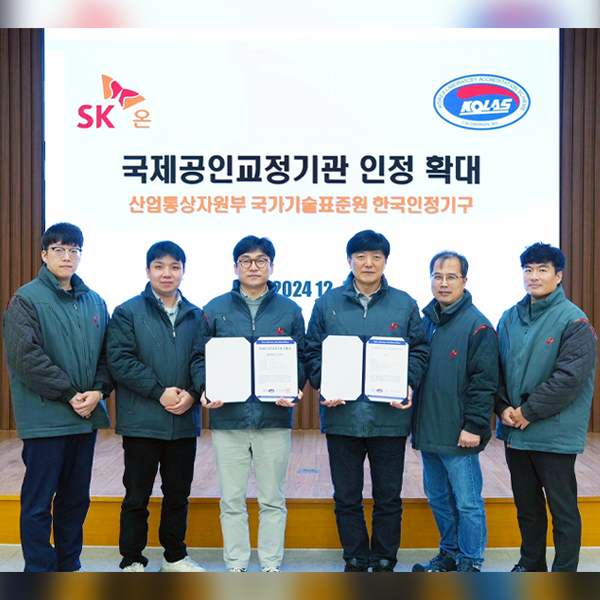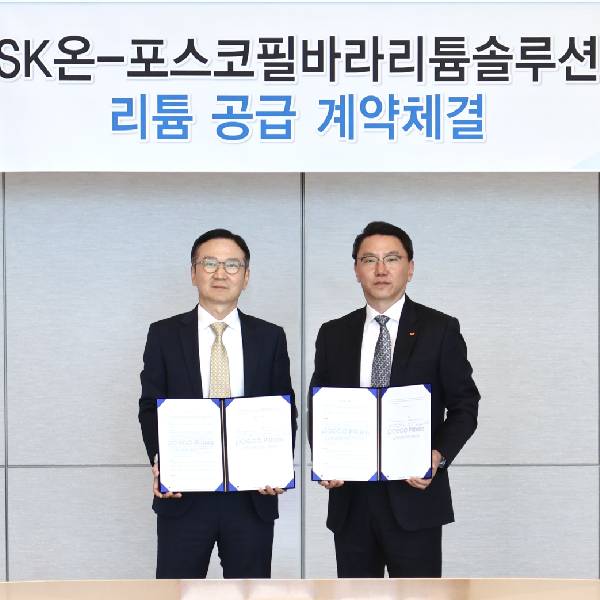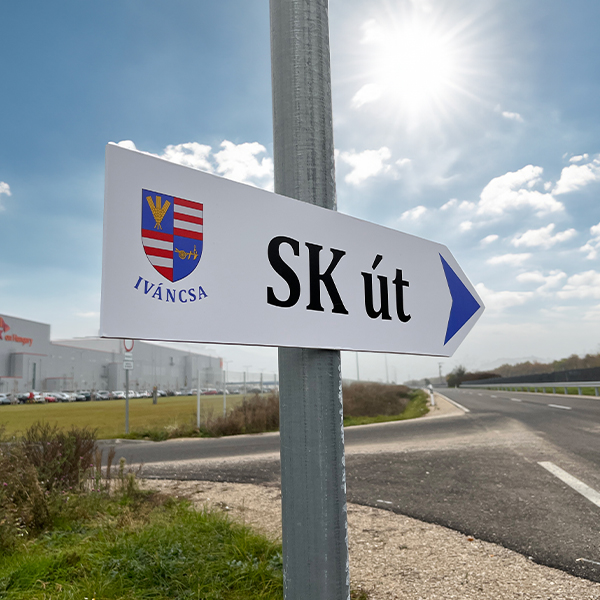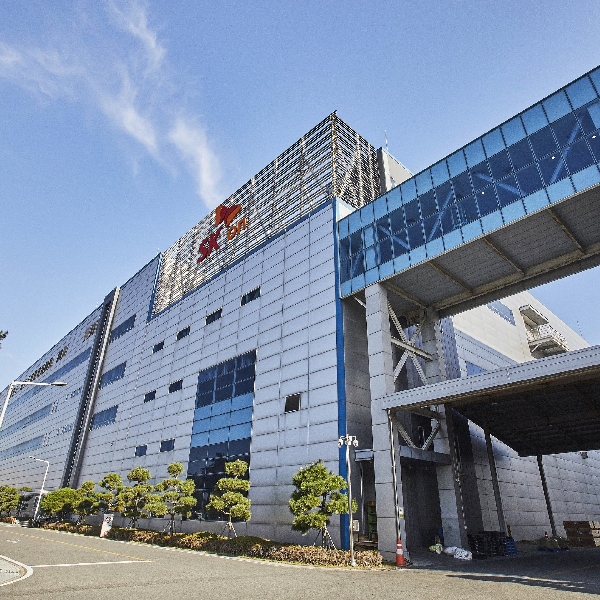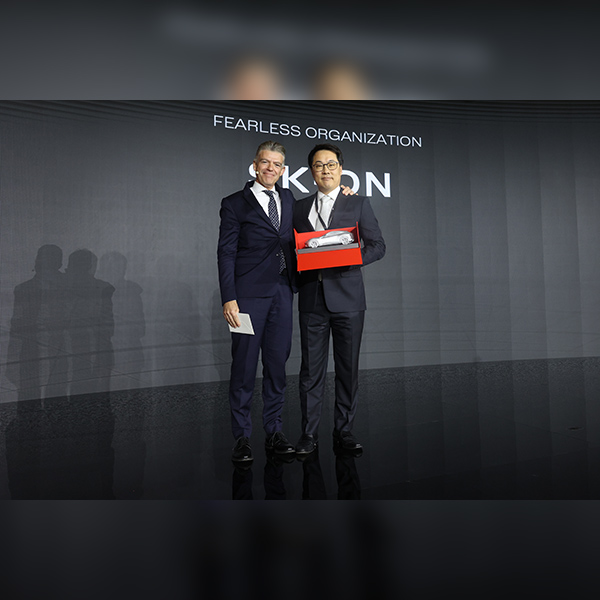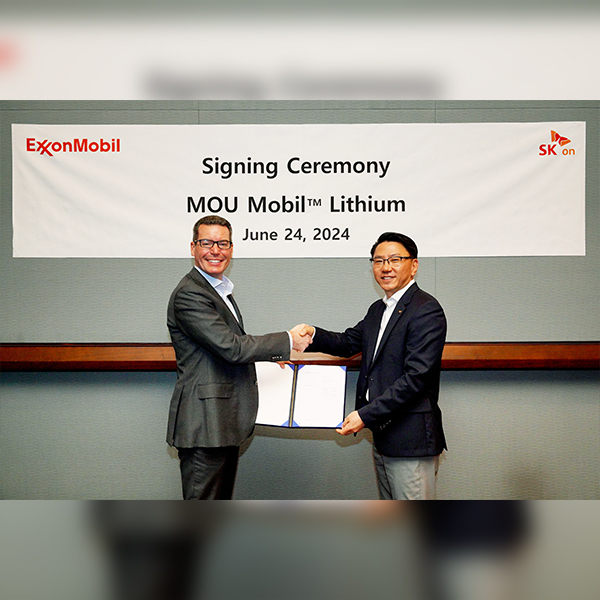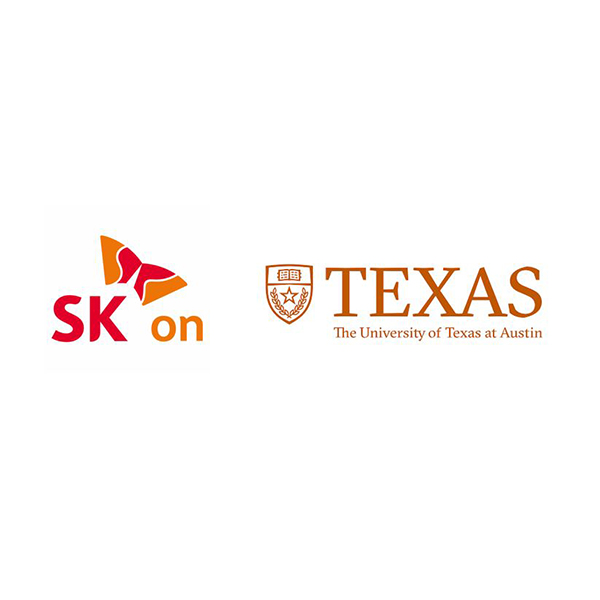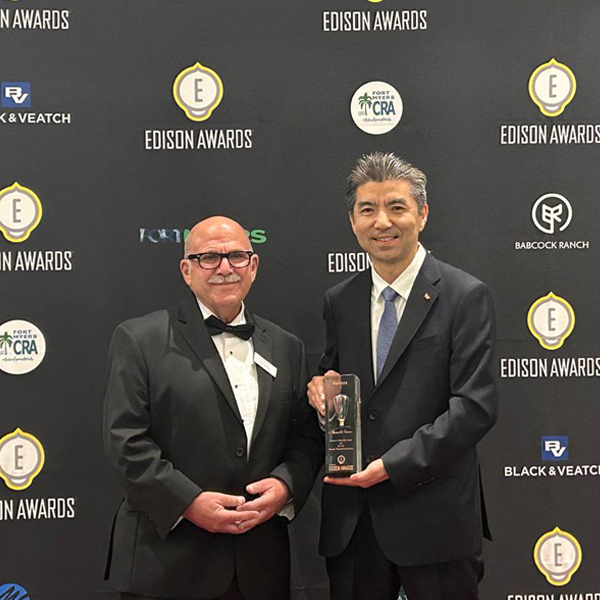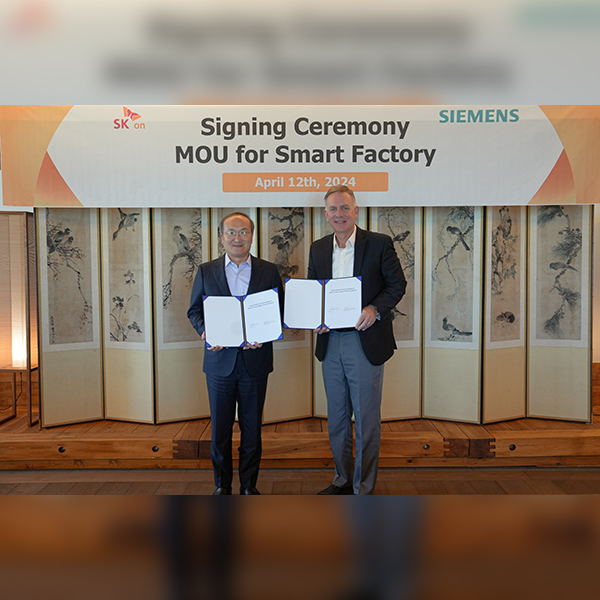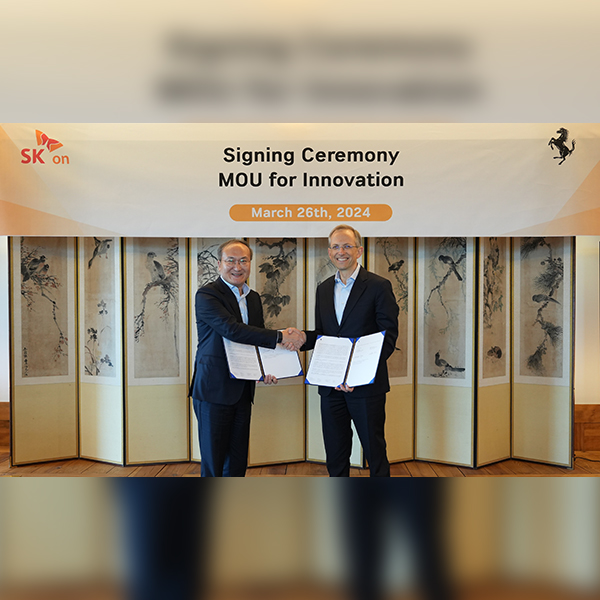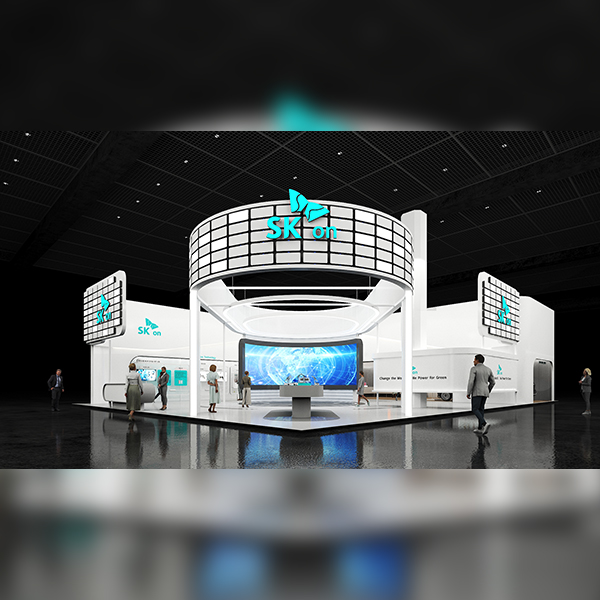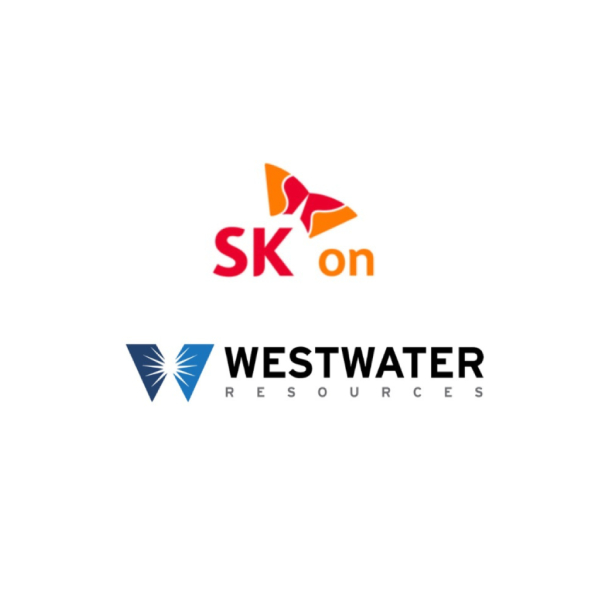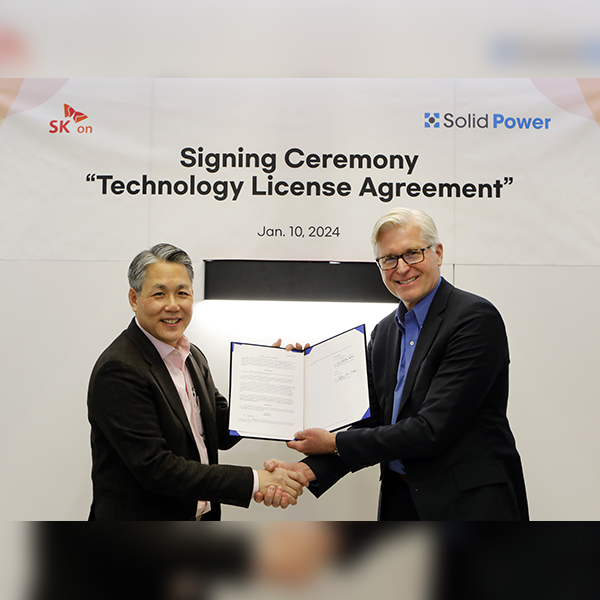 SK On
SK On■ Three-party equity investment… Agreement on the “establishment of a corporation for nickel intermediates (MHP) production”
■ MHP targets production of 30,000 tons per year from pure nickel starting the third quarter of 2024…Collaboration to expand in the future
SK On aims to strengthen its nickel supply chain with major battery material companies locally and abroad.
On November 24, SK On signed a business agreement with EcoPro, a secondary cell battery materials company, and Green Eco Manufacture (hereinafter GEM), a Chinese battery precursors producer, to establish a corporation for nickel intermediates production in Indonesia.
Vice President of EcoPro Park Sang-wook, GEM Vice-Minister Jiang Miao, and SK On Head of Battery Procurement Division Shin Young-kee attended the opening ceremony.
Under the agreement, the three companies will build a “Ni Mixed Hydroxide Precipitate (hereinafter MHP)” production plant in the Morowali Industrial Complex in Sulawesi, Indonesia, and produce MHP amounting to 30,000 tons of pure nickel per year starting the third quarter of 2024. The production amount is equivalent to 43 GWh of the EV battery, which is enough to produce 600,000 EVs. The three companies plan to expand cooperation in raw materials such as battery precursors and nickel.
They also plan to secure nickel oxide at the Hengjaya mine in Sulawesi. Since nickel oxide can be mined in the open air, the mining process is less expensive, and cobalt can be obtained as by-products.
In addition, the three companies will introduce High-Pressure Acid Leaching (HPAL) smelting process to produce the MHP from nickel oxide minerals. The HPAL process leaches metal that reacts with sulfuric acid from raw nickel ore under high temperatures and pressure. Higher-purity nickel compounds are produced with this technique. With its prior experience in MHP production, GEM will be providing this technology.
The nickel intermediate MHP is becoming an essential raw material for nickel sulfate, which produces batteries’ precursors. The MHP is more stable than other intermediates and is relatively inexpensive. According to Korea International Trade Association, the amount MHP accounts for in nickel sulfate production materials worldwide is expected to increase significantly from 24% to 42% between 2020 and 2030.
The three companies are also considering producing nickel sulfate, and battery precursors in Korea based on the MHP secured through this occasion. If SK On procures the nickel sulfate from South Korea (an FTA partner with the U.S.) and puts it into the EV battery production process in the U.S., it may meet the IRA electric vehicle subsidies requirements.
Along with lithium and cobalt, nickel is considered an essential raw material for EV batteries. More nickel means a higher energy density of the battery. Thus, the trend in the battery industry is to gradually increase the proportion of nickel in cathode materials to increase battery performance.
SK On’s NCM9 high-nickel battery typically has about 90% nickel content. Accordingly, the demand for nickel used in EV batteries is increasing rapidly. With the accelerating transition from internal combustion engine vehicles to electric vehicles, the percentage of battery manufacturing usage in the global nickel use increased from 4% to 13% between 2019 and 2021.
As the price volatility of raw materials has increased, securing a stable supply chain has become more critical than ever for the battery industry. Earlier this year, nickel prices reached an all-time high of $42,995 per ton (as of March 7).
Indonesia is the world’s largest source and producer of nickel. Last year, Indonesia produced almost 1 million tons of nickel, placing the country at the No. 1 spot in the world. Its nickel reserves account for around 22% of the global reserve at 21 million tons. This amount places Indonesia alongside Australia (about 22%) as the world’s largest nickel reserve.
SK On has strengthened its supply chain for core battery materials such as lithium and cobalt. This month, it signed a long-term lithium supply contract with Chile’s SQM, a leading lithium company, and agreed to supply 57,000 tons over five years starting in 2023. Last month, SK On invested a 10% stake in Lake Resources in Australia and signed a mid-to-long-term contract to be supplied 230,000 tons of lithium over ten years starting the fourth quarter of 2024.
In addition, the battery business has cooperated with several companies for raw materials, such as Global Lithium Resources (Australia), Glencore (Switzerland), and POSCO Holdings.
“The cooperation between the three companies is significant in that they established a global nickel supply chain,” said Shin Young-kee, Head of Battery Procurement Division at SK On. “SK On plans to further strengthen its raw material supply chain by cooperating with different raw material companies.”
“We decided on the joint venture after close discussions with SK On and GEM at a time when the supply and demand of global nickel remained uncertain in the mid-to-long-term,” said Park Sang-wook, Vice President of EcoPro. “This business agreement is even more meaningful because it is based on trust among the three companies.”
[Photo]
SK On Head of Battery Procurement Division Shin Young-kee, Vice President of EcoPro Park Sang-wook, GEM Vice-Minister, Jiang Miao are taking commemorative photos after signing a business agreement to establish a corporation for nickel intermediates production in Indonesia at SK Seorin Building, Seoul on November 24.
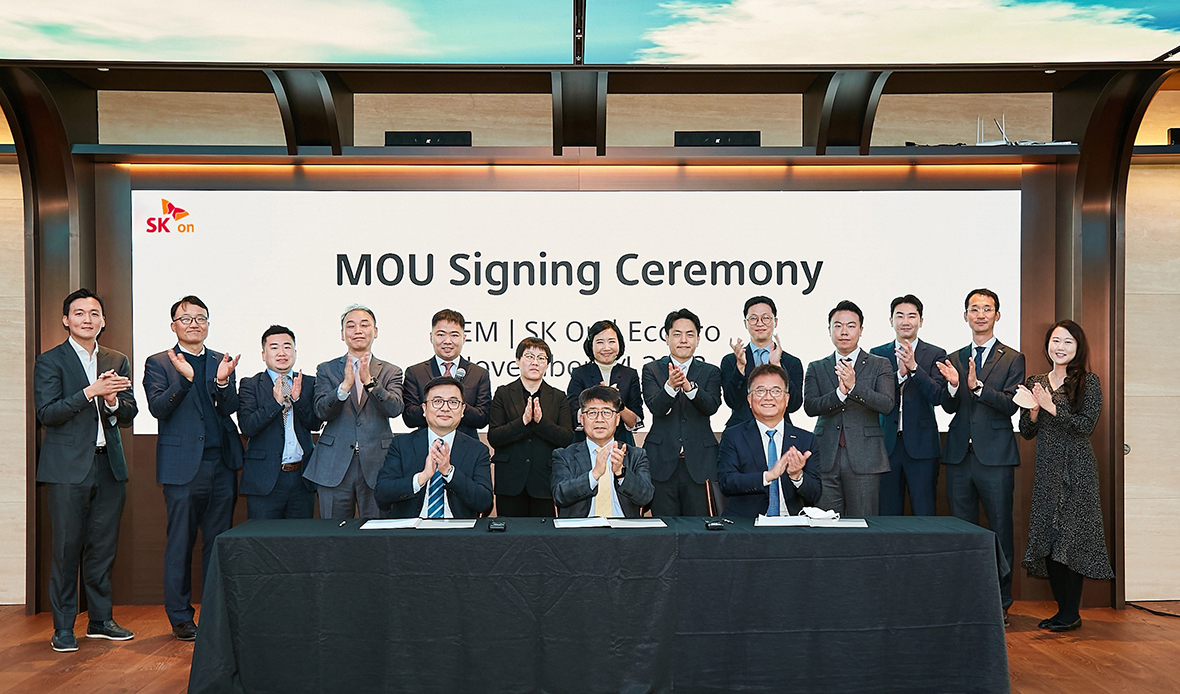










 Youtube
Youtube Facebook
Facebook Instagram
Instagram Linkedin
Linkedin








